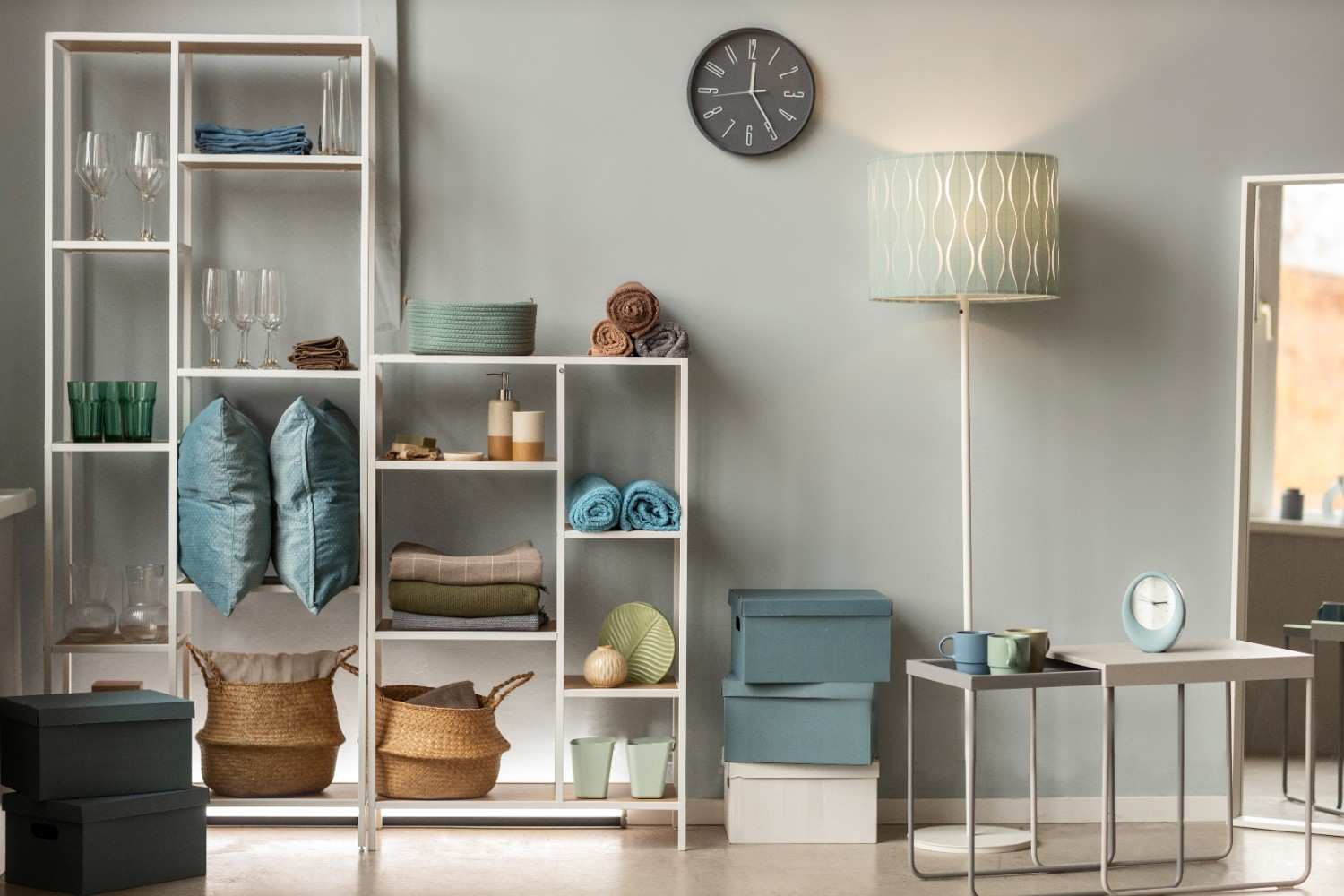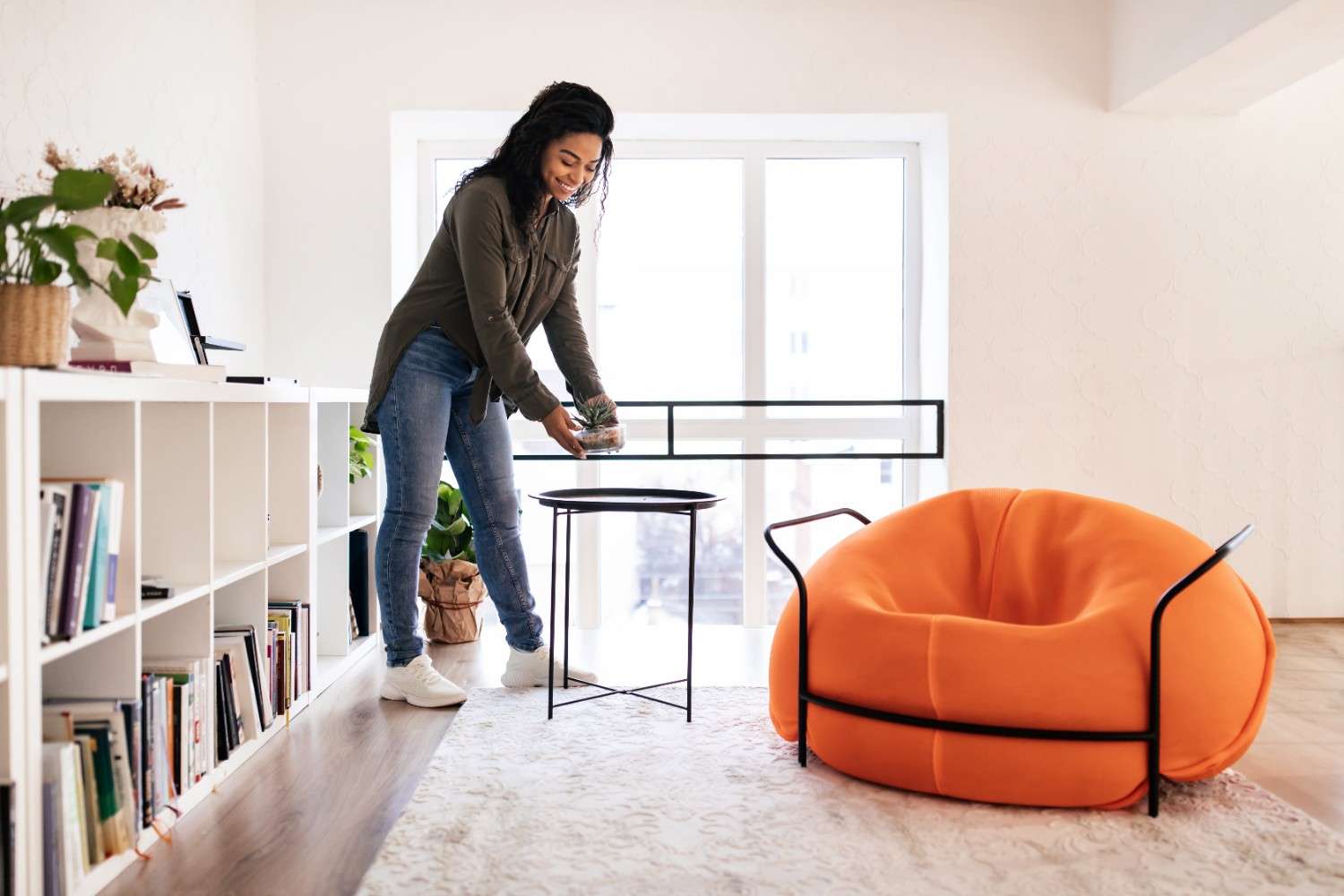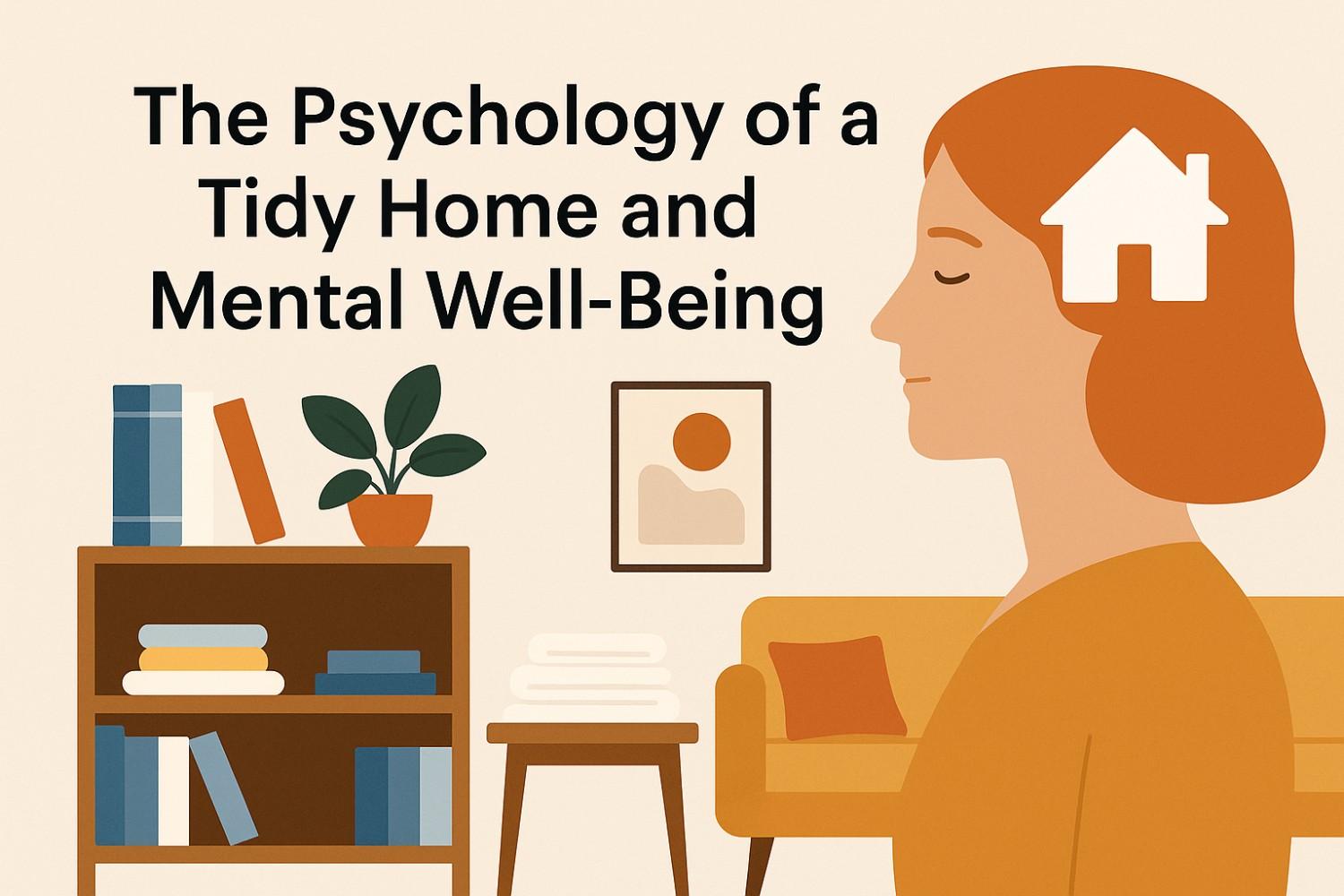A cluttered coffee table covered in magazines, mail, and yesterday’s coffee cup. Clothes draped over chairs instead of hung in closets. Kitchen counters buried under appliances that never seem to find their way back to cabinets.
Does this scene sound familiar? If so, you’re not alone. Many of us struggle with maintaining organized living spaces, often dismissing it as a simple matter of laziness or lack of time. But research reveals something far more fascinating: the state of our homes has a profound psychological impact on our mental well-being, productivity, and overall quality of life.
The relationship between our physical environment and psychological state runs much deeper than we might expect. When we understand the science behind why tidiness matters, we can harness this knowledge to create spaces that truly support our mental health and daily functioning.
How Clutter Affects Your Brain
Your brain processes visual information constantly, even when you’re not consciously aware of it. When you walk into a cluttered room, your visual cortex becomes overwhelmed trying to process all the competing stimuli. This creates what researchers call “cognitive overload.”

Studies from UCLA’s Center on Everyday Lives and Families found that women living in messier homes had higher cortisol levels throughout the day. Cortisol, known as the stress hormone, affects everything from sleep quality to immune function. Essentially, clutter creates a low-level stress response that persists as long as you’re in that environment.
The brain also craves predictability and order. When objects don’t have designated places, your mind must work harder to locate items and navigate spaces. This mental effort, while seemingly minor, accumulates throughout the day and contributes to decision fatigue.
The Mental Benefits of Organization
Creating organized spaces triggers several positive psychological responses. First, completing organizational tasks releases dopamine, the neurotransmitter associated with pleasure and motivation. This explains why many people find decluttering surprisingly satisfying once they begin.
Organized environments also promote what psychologists call “restoration.” When your surroundings are orderly, your mind can relax and reset more easily. This is particularly important in bedrooms and living areas where you seek comfort and rejuvenation.
Additionally, tidy spaces enhance focus and productivity. Princeton University researchers used fMRI scans to demonstrate that people concentrate better in organized environments. When visual distractions are minimized, the brain can allocate more resources to the task at hand.

The Control Connection
Humans have an innate need for control, especially during uncertain times. Organizing your living space provides a sense of agency and accomplishment that extends beyond the physical act itself. When external circumstances feel chaotic, creating order at home becomes a powerful coping mechanism.
This psychological benefit explains why many people turn to organizing during stressful life events. The process of sorting, categorizing, and arranging gives structure to thoughts and emotions that might otherwise feel overwhelming.
Creating Psychological Safety Through Design
Your home should function as a retreat from the demands of daily life. Organized spaces contribute to what researchers call “psychological safety” – the feeling that you can be authentic and relaxed without judgment or stress.
Consider how different rooms serve different psychological functions. Bedrooms organized for rest and relaxation signal to your brain that it’s time to unwind. Kitchen organization supports nourishing meal preparation. Efficient storage solutions, like custom closet systems in Salt Lake City homes, can transform chaotic morning routines into calm, purposeful starts to the day.
The key lies in creating systems that match your lifestyle and personality. Some people thrive with minimalist aesthetics, while others prefer organized abundance. The goal isn’t perfection – it’s creating an environment that supports your mental well-being.

Small Changes, Big Impact
The psychology of tidiness doesn’t require massive overhauls. Small, consistent improvements can yield significant psychological benefits. Start with high-impact areas like nightstands, kitchen counters, or entryways. These spaces are frequently used and visible, making improvements immediately noticeable.
Establish simple routines that maintain organization without requiring constant effort. Spending five minutes each evening returning items to their designated places prevents accumulation and maintains the psychological benefits of order.
Remember that organization is deeply personal. Some individuals work better with visible systems where everything is in sight, while others prefer hidden storage that creates clean visual lines. Experiment to discover what configuration makes you feel most calm and productive.
Building Your Organized Sanctuary
The science is clear: our physical environments significantly influence our psychological states. By understanding this connection, we can intentionally design spaces that support mental clarity, reduce stress, and enhance daily life.
Start small, be patient with yourself, and focus on progress rather than perfection. Your future self will thank you for creating a home that serves not just your practical needs, but your psychological well-being too. After all, the most beautiful spaces are those that allow you to feel truly at peace.









